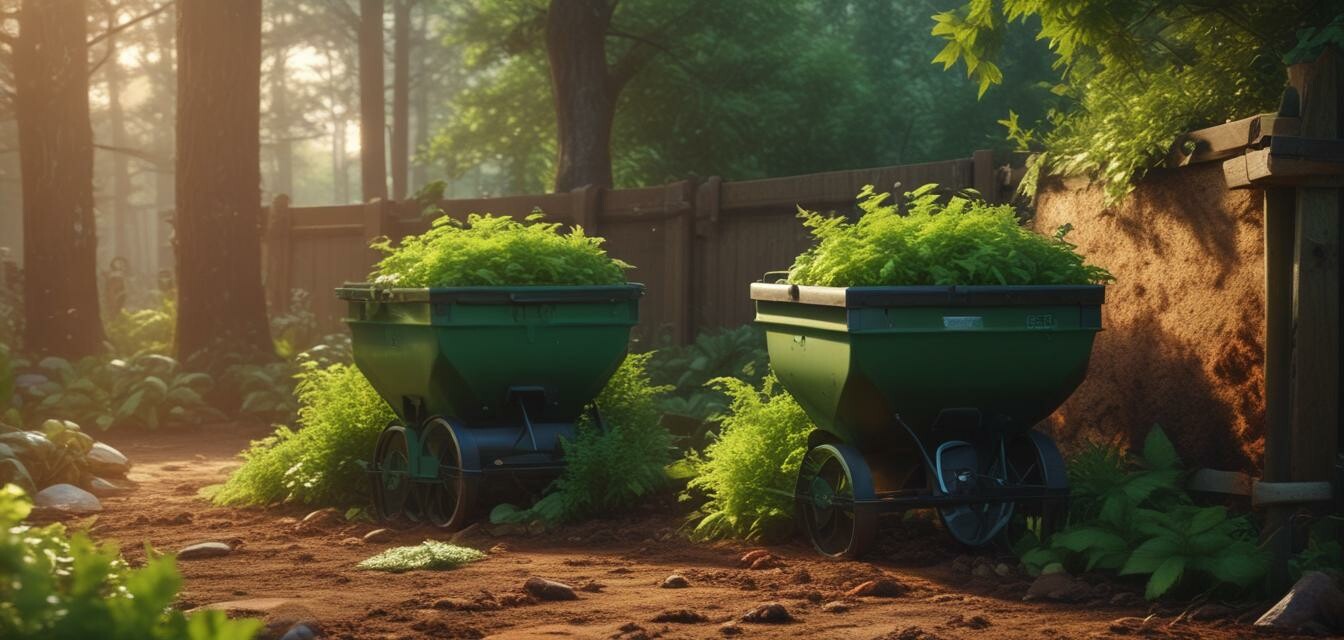
The Latest Research in Composting: What’s New?
Key Takeaways
- Recent research emphasizes the importance of compost quality and its effects on soil health.
- Microbial activity in composting processes is critical for effective waste breakdown.
- Innovative composting technologies are improving efficiency and reducing odors.
- Community involvement in composting initiatives is on the rise, promoting sustainability.
- Education on proper composting techniques leads to more successful home composting results.
Composting has been a cornerstone of sustainable living for decades, but the methodologies and technologies behind it are continually evolving. Recent studies and innovations are providing fresh insights into composting practices, enhancing both efficiency and effectiveness. In this article, we will explore the latest scientific findings in composting and their implications for home composters. Let's dive into what’s new!
Importance of compost quality
One of the standout findings from recent studies emphasizes the importance of compost quality. High-quality compost can profoundly impact soil health and plant growth.
| Compost Quality Aspect | Effect on Soil |
|---|---|
| Nutrient Content | Improves fertility and supports crop growth |
| Microbial Diversity | Promotes healthy soil ecosystems |
| Texture and Aeration | Enhances drainage and root penetration |
The role of microbes in composting
Another significant finding is the role of microbial activity in composting processes. Research indicates that a diverse microbial population can enhance the breakdown of organic materials, leading to more efficient composting.
- Increased microbial diversity leads to a quicker decomposition rate.
- Maintaining optimal moisture and aeration levels encourages microbial growth.
- Adding carbon-rich materials can foster a balanced microbial population.
Innovations in composting technology
Innovative composting technologies are also emerging, aimed at making composting easier and more efficient. Here are some notable advancements:
| Technology | Description |
|---|---|
| Smart Composters | Automated systems that monitor moisture, temperature, and aeration. |
| Compost Tumblers | Rotating containers that improve aeration and speed up decomposition. |
| Bokashi System | A fermentation-based method for composting kitchen scraps. |
Community initiatives and composting
Another interesting trend is the increasing community involvement in composting initiatives. Many cities are launching programs to encourage residents to reduce waste and compost organic materials.
- Community composting sites offer resources and education.
- Participation in local workshops enhances knowledge and skills.
- Community gardens promote the use of homemade compost in plant growth.
Educating the public on effective composting
Recent studies highlight that education on proper composting techniques leads to more successful home composting results. Several approaches are proving effective:
- Online resources and forums for tips and troubleshooting.
- Workshops hosted by local gardening clubs.
- Collaboration with environmental organizations to spread awareness.
Pros
- Increased knowledge fosters better composting results.
- Community programs enhance social responsibility.
- Innovative technologies make composting easier for individuals.
Cons
- Access to composting education can vary by location.
- Some technologies may have high initial costs.
- People may struggle with consistent composting practices.
Conclusion
The advancement of composting studies and technologies holds tremendous promise for improving our composting practices at home. By focusing on compost quality and understanding the integral role of microbes, we can create better soil health and plant growth. Moreover, innovative technologies and community initiatives are making composting more accessible, while education ensures success among new and seasoned composters alike.
For more information on different types of composters, check out our Open Air Composters or explore Worm Composting Bins to find the right solution for your composting journey!